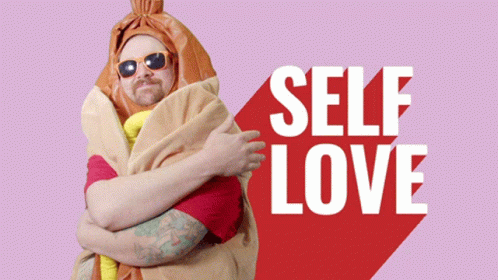5 Signs Your Mental Well-Being is Suffering at Work
Your career journey can be an amazing source of satisfaction and achievement. But let's be real – it has its ups and downs. Sometimes, the stress and demands of work sneak up on us, testing the limits of our mental well-being. It's easy to forget that protecting your mental well-being is even more important than developing your professional skills.

Let's dive into why prioritizing mental well-being at work matters and how to spot red flags.
What Happens When Mental Well-Being Goes Unchecked at Work
Ignoring your mental well-being at work can spiral into problems that ripple throughout every area of your life.

Here's what might happen if you push your mental wellbeing aside:
✅ Burnout
This isn't just feeling tired, it's a state of complete physical and emotional exhaustion. It crushes your focus and motivation and can feel impossible to bounce back from.
✅ Difficulty Concentrating
When your mind is overloaded, it's like trying to work with 20 tabs open in your brain. You lose track of time, make more mistakes, and get less done.
✅ Health Problems
Stress isn't just mental – it takes a toll on your body, too. You might experience headaches, sleep issues, worsened chronic conditions, and a weakened immune system.
✅ Strained Relationships
The pressure at work can bleed into your personal life. You might become irritable, withdrawn, or less present for the people you love.
5 Red Flags and How to Respond
To keep your mental well-being strong, watch out for these warning signs at work:
➡️ You're Feeling Negative – All the Time
Everyone has bad days. But if grumpiness, cynicism, and negativity become the norm, it's a red flag. For example, every meeting feels frustrating. You constantly disagree with your boss's approach, and colleagues you used to enjoy working with seem irritating. Basically, what you’re looking for is a change in your attitude to work.
How to approach this red flag: Reflect honestly. Is your job mainly responsible for this or could something outside work be the cause? If it's work-related, explore what specific aspects drag you down. Look at when the change in attitude occurred and what exactly changed. Once you’ve figured that out, start thinking about what you can have control over and what changes you can start implementing to get back on the right track.
➡️ Small Tasks Feel Like Mountains
A sense of overwhelm or dread at even routine work is a sign your mental bandwidth is shrinking. For example, you used to breeze through updating weekly reports, but now it feels like an insurmountable task. Even simple emails take forever to write because you can't focus.
How to approach this red flag: Do these tasks first and get them out of the way before moving on to things that you find more interesting. Doing so may not make the small tasks more enjoyable but at least the thought of doing them isn’t lingering in your mind and making your day worse.
➡️ Withdrawal
If you’ve started pulling away from coworkers and avoiding conversations, it could be emotional exhaustion kicking in. For example, you used to enjoy grabbing lunch with colleagues and catching up. Lately, you find excuses to eat alone at your desk, avoiding social interaction.
How to approach this red flag: Take baby steps and start to reconnect during quick breaks in the break room. Also, if possible, go for a walk outside with a colleague. Even minimal positive social interaction can help recharge you.
➡️ You're Super Forgetful
Occasionally forgetting things is normal, but chronic forgetfulness can be proof that your brain is overloaded. For example, you start to miss important meetings because you forget to write them down or deadlines sneak up on you because they slip your mind. You likely start noticing this forgetfulness outside of work, too.
How to approach this red flag: Get organized! Use a planner or online calendar such as Google Calendar, checklists, and task management apps to externalize your workload and free up mental space. Set up alerts and alarms to remind you of important tasks, meetings and deadlines. Doing all this will help you not miss important tasks and will thus lower your stress level. Not to mention you’ll avoid getting “friendly” reminders and not-so-friendly negative reviews from your boss.
➡️ Work Consumes Your Thoughts 24/7
Being unable to mentally switch off from work eats away your life outside of it. For example, do you find yourself checking work emails first thing in the morning and last thing at night, even on weekends during your Netflix binge? This constant connectivity prevents you from truly relaxing and recharging, both of which are absolutely necessary for good mental and emotional well-being.
Action Step For You: Set boundaries. Decide on a start and end time for work and stick to it. Make a to-do list for the next day before you “clock out.” That’ll get those pesky work thoughts out of your head and onto paper. It’ll also give you a head start on the next day. Don’t check emails after hours and make time to unwind each evening.
Helpful Resources
Don't wait until a red flag becomes a full-blown crisis. Here are some resources that can help:
👉 Company Support
Does your workplace offer wellness programs or resources, such as an Employee Assistance Program (EAP)? Take advantage of it, if available.
👉 Therapy
Seeking a therapist gives you a space to unpack work stress and learn coping skills tailored to you. Many therapists offer online options for flexibility!
👉 Mindfulness apps
Headspace, Calm, and others offer guided meditations and exercises to calm your mind in minutes.
Your career journey shouldn't be a sacrifice to your mental well-being. Don't get me wrong, work can be challenging – that's part of growth. But chronic stress, negativity, and overwhelm signal a need for change. By being aware, setting boundaries, and seeking help when needed, you can protect your well-being. Your future self will thank YOU!

I’d love to hear from you! How do you prioritize your mental well-being?
-Lauren
P.S.
Would you like to explore how I can support your career goals? I offer a free 20-minute consultation to answer your questions and discuss how my services can help you achieve your objectives. To get a better idea of the topics we might cover, you can check out common questions, view my career packages, and book a session through this link: https://www.tychecoaching.com/frequently-asked-questions


